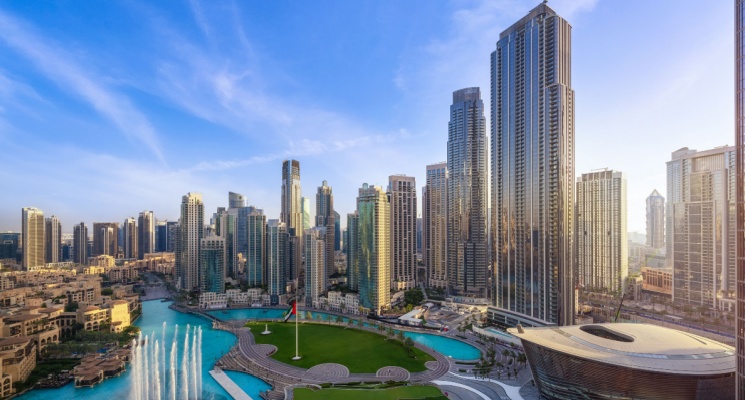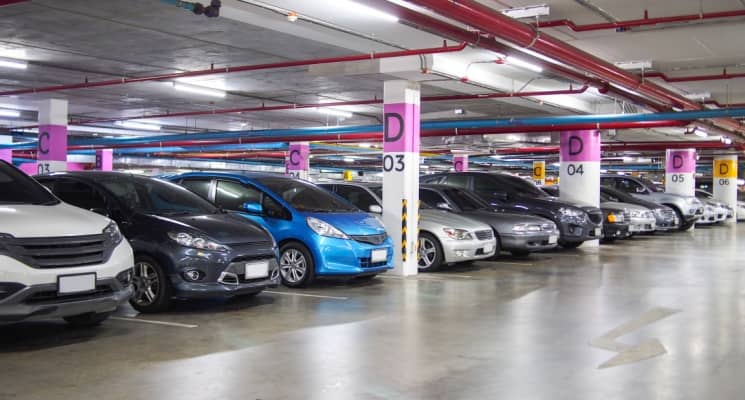Deciding whether to buy or rent a property in Dubai, especially when considering local moving options, is a significant financial decision that depends on various factors. The city’s real estate market is dynamic, influenced by its rapid growth, diverse expatriate population, and evolving regulations. This guide aims to help you navigate the decision-making process by considering key elements unique to Dubai.
Whether you are contemplating hiring movers in Dubai to rent out a new place or evaluating the long-term benefits of property ownership, this has got you covered.
Understanding Dubai’s Real Estate Landscape
Dubai’s real estate market is known for its diversity and rapid growth. From luxury villas to high-rise apartments, there is a wide array of properties available. The decision to buy or rent largely depends on your financial stability, long-term plans, and lifestyle preferences.
Legal Considerations
Dubai has specific laws governing property ownership and tenancy. For example, the Dubai Land Department (DLD) oversees property transactions and ensures legal compliance. When renting, it is crucial to understand the tenancy laws, including contract terms, renewal processes, and tenant rights. For buyers, familiarizing yourself with property registration procedures and ownership regulations is essential.
Key Factors to Consider
Making the decision to buy or rent in Dubai involves evaluating several critical factors. Here are some key considerations to help guide your choice:
Financial Stability and Budget
Assessing your financial situation is crucial when deciding whether to buy or rent. Consider your income, savings, and long-term financial goals. If you have a stable income and can afford the down payment and other initial costs of purchasing a property, buying might be a viable option. On the other hand, if you prefer to allocate your funds elsewhere or have a variable income, renting could be more suitable.
Length of Stay
Your planned duration of stay in Dubai should significantly influence your decision. If you intend to live in Dubai for an extended period, buying property may be more cost-effective in the long run. However, if your stay is temporary or uncertain, renting provides the flexibility to relocate without the complexities of selling a property.
Market Conditions
Understanding the current real estate market conditions in Dubai is essential. Market trends, property values, and rental rates can fluctuate, impacting your decision. Conduct thorough research or consult with real estate experts to gain insights into whether it is a buyer’s or renter’s market.
Lifestyle Preferences
Consider your lifestyle and housing preferences. Do you prefer living in a high-rise apartment in the city center or a spacious villa in the suburbs? Your choice will affect the type of properties available for rent or purchase and their associated costs.
Buying Property in Dubai
Deciding to buy property in Dubai involves weighing various benefits and challenges. Here are some key pros and cons to consider:
Advantages of Buying
- Long-term Investment: One of the primary reasons people consider buying property in Dubai is the investment potential. Real estate in Dubai has historically provided solid returns, and property values have appreciated over time.
- Stability and Control: Owning a property provides stability and control over your living space. You have the freedom to renovate, decorate, and modify your home as you see fit.
- Rental Income Potential: Dubai’s rental market is robust, and owning property allows you to generate rental income, which can be a steady source of revenue, especially in sought-after areas.
- Security of Tenure: For those looking to stay long-term, owning a home can provide peace of mind, reducing the need to worry about rent increases or the possibility of eviction.
- Residency Incentives: Investors who purchase property above a certain value may be eligible for long-term residency visas. This is a significant advantage for expatriates looking to establish a stable base in Dubai.
Challenges of Buying
- High Initial Costs: Buying property involves substantial initial costs, including the down payment, registration fees, and agent’s commission. The Dubai Land Department’s (DLD) fees and the Mortgage Registration Fee can add to the overall expense.
- Market Volatility: While some areas have shown steady growth, the market can be volatile. Economic downturns or changes in regulations can impact property values.
- Maintenance Responsibilities: As a homeowner, you are responsible for maintenance and repairs, which can be both time-consuming and costly.
Renting Property in Dubai
Renting in Dubai offers flexibility and convenience, ideal for those who prefer to avoid long-term commitments. However, it also comes with its own set of challenges and limitations.
Benefits of Renting
- Flexibility: Renting offers greater flexibility, making it easier to move or change locations without the burden of selling a property. This is particularly beneficial for expatriates or those unsure about their long-term stay in Dubai.
- Lower Upfront Costs: Renting typically requires a security deposit and a few months’ rent in advance, making it a more affordable option compared to buying. This can be a significant advantage for those with limited funds.
- Maintenance-Free Living: Most rental properties in Dubai are maintained by the landlord, reducing the hassle and cost associated with repairs and maintenance.
- Access to Premium Locations: Renting allows you to live in prime locations without the high purchase price. Areas like Dubai Marina, Jumeirah Beach Residence, and Downtown Dubai are popular among renters for their convenience and lifestyle amenities.
Drawbacks of Renting
- No Equity Building: Renting means you are not building equity or investment in a property. Monthly rent payments go to the landlord without contributing to ownership or asset accumulation.
- Rent Fluctuations: Rents in Dubai can fluctuate based on market conditions. There can be periods of increase, especially with the influx of new expats in the city.
- Lack of Stability: Renting can be less stable than owning. Rent increases or the landlord’s decision to sell the property can disrupt your living situation.
Financial Considerations
When deciding between buying and renting, financial implications are paramount. Here is a breakdown to consider:
Down Payment
This is the upfront amount you pay to acquire your property, either to the bank (if you’re using a mortgage) or to the developer (when buying off-plan). As per the UAE Central Bank, foreign investors must make a down payment of at least 20% of the property’s value, while UAE nationals (first-time buyers) need to pay at least 15%. Personal loans cannot be utilized for down payments on property investments in the UAE. You can refer to this article on getting a mortgage in Dubai for more details.
Mortgage Repayments (EMI)
These are the monthly payments you make towards the remaining balance of your property loan, not including the down payment. In the UAE, the loan-to-value (LTV) ratio, or the amount of the mortgage, is limited to 80% for properties valued under AED 5 million and 70% for those valued over AED 5 million. Your mortgage EMIs will cover 80% or 70% of the property’s value, plus interest.
Upfront Costs for Property Investment in Dubai
These upfront expenses are quite substantial, and a prospective property investor should budget around 6% to 7% of the property’s purchase price for these initial costs. Unlike the down payment, these additional costs can often be covered by a personal loan. A few of the upfront expenses you might encounter include:
- Real Estate Broker Fee: 2% of the property value + 5% VAT
- Dubai Land Department (DLD) Transfer Fee: 4% of the property value + AED 580 administrative charges
- Mortgage Registration Fee: 0.25% of the loan value + administrative charges
- Property Registration Fee: Starting at AED 4,000 for properties valued over AED 500,000 + 5% VAT
- Property Valuation Fee: AED 2,500 to AED 3,000 + 5% VAT
- Bank Mortgage Loan Establishment Fee: 1% of the loan amount + 5% VAT
Annual Maintenance Charges
This is a recurring fee that landlords must pay to the DLD for maintenance purposes. The annual maintenance costs are determined by the RERA Service Charge Index, which specifies a charge per square foot of the property and differs among various communities in Dubai. Additionally, maintenance fees can vary between different emirates.
Legal and Regulatory Considerations
Dubai’s real estate laws and regulations are designed to protect both buyers and renters. Here are key points to consider:
For Buyers
- Freehold and Lease: Dubai offers freehold ownership for expatriates in designated areas. Leasehold properties are available for longer terms, typically 99 years, in certain locations.
- Property Registration: All property transactions must be registered with the Dubai Land Department. Ensure all legal documentation is in order to avoid disputes and penalties.
For Renters
- Tenancy Contracts: Rental contracts must be registered with the Ejari system, which is essential for legal protection and dispute resolution. The rental contract should clearly state the terms, rent amount, and duration.
- Rent Caps: Dubai’s Real Estate Regulatory Agency (RERA) sets rent caps to protect tenants from exorbitant rent increases. Familiarize yourself with the latest regulations to ensure fair rental terms.
Conclusion
Deciding whether to buy or rent in Dubai involves weighing the benefits and drawbacks of each option. By considering your financial stability, lifestyle preferences, and long-term plans, you can make an informed choice that aligns with your needs. Whether you choose to invest in property or enjoy the flexibility of renting, Dubai’s vibrant real estate market offers a range of options to suit various lifestyles and budgets. For more detailed advice tailored to your specific situation, consider consulting with real estate professionals or financial advisors who are well-versed in Dubai’s property landscape.
Whatever you decide, you can rest assured that the best moving companies in Dubai are always just a click away to help you move, whether it is as a tenant or a property owner.







